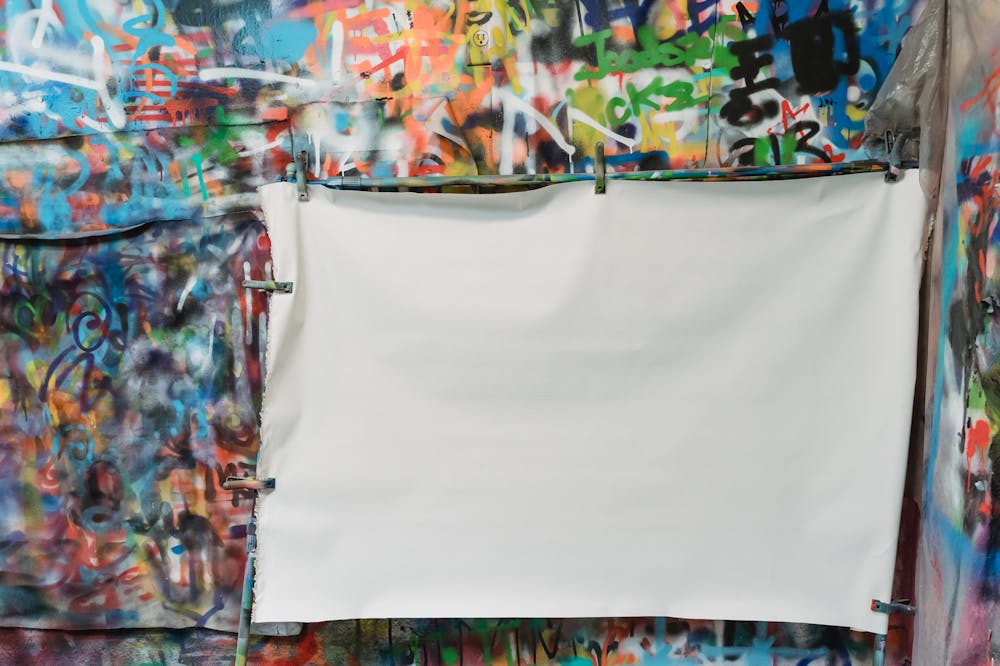
“No man is free who is not master of himself.”
Epictetus
Free your mind. Not in some woo-woo, sit-on-a-mountain-top kind of way—but in the “enough with the noise already” kind of way.
If you’re feeling buried under constant notifications, half-finished thoughts, and a to-do list that reproduces overnight, it’s probably time to hit reset. Not on your phone—on your mindset.
This isn’t about tossing all your stuff or becoming a monk. It’s about stripping back the mental clutter that keeps you anxious, restless, and always three steps behind.
What you’ll find here is a down-to-earth approach to minimalism—not the aesthetic, but the attitude.
Because most of us don’t need more stuff. We need more space. In our heads. In our lives. In our Google Calendars.
So if you’re ready to free your mind from the chaos you didn’t sign up for and start building a life that actually feels good on the inside—not just one that looks good on the outside—you’re in the right place.
Before we dive into the nine mindsets that will help you do exactly that, let’s clear up what minimalism really means.
Mention minimalism, and most people would either picture some dude living in a white box with a single spoon or an Instagram influencer who threw out half their closet and now thinks they’re the Dalai Lama.
Let’s be clear: Minimalism isn’t about owning less junk. It’s about owning your life.
It’s about finally putting a stop to the mental noise, the unnecessary obligations, and that weird guilt you feel for not doing more, buying more, or being more.
Joshua Becker, who wrote Things That Matter: Overcoming Distraction to Pursue a More Meaningful Life, puts it like this:
“Minimalism is the intentional promotion of the things we most value and the removal of anything that distracts us from it.”
In short, ditch the physical, mental, and emotional junk so that you can focus on what actually makes you feel alive.
Because right now? Your brain’s probably juggling twelve open tabs, three half-finished projects, and the haunting memory of a text you forgot to reply to.

You don’t need more productivity hacks. You need space. That’s how you free your mind. Minimalism isn’t just about your stuff. It’s about your bandwidth.
And science suggests that simplifying your surroundings and decisions can boost focus, lower stress, and a serious boost in wellbeing.
To free your mind and elevate your wellbeing, here are 13 minimalist mindsets. Use each mindset as a stepping stone toward a more purposeful and liberated you.
Let’s start with the obvious: your stuff owns more of you than you own of it.
We’ve all been fed the same lie since birth — that happiness lives inside the next Amazon box or behind the paywall of a designer label. But here’s the truth most people figure out after their third midlife crisis: more stuff doesn’t make you feel more alive.
It just makes your house harder to clean.
This mindset? It’s about calling time-out on the toxic relationship you’ve built with your things. Not because minimalism means living like a monk — but because constantly chasing shiny objects is basically emotional junk food for your brain.
A study published in the Journal of Personality and Individual Differences found that materialistic people generally report lower life satisfaction. Translation? That dopamine hit from buying stuff fades faster than your phone battery at 2%.
When you free your mind from material obsession, something weirdly amazing happens: you start noticing how much peace there is in less. Less clutter. Less guilt. Less stuff to trip over—literally and mentally.

Picture this: your home doesn’t look like a storage unit. Your brain isn’t juggling what to buy next. Suddenly, you’ve got mental space. Emotional breathing room. A chance to just be, instead of always acquire.
It’s not about owning nothing. It’s about not letting what you own, own you.
Here’s a fun cosmic joke: you don’t actually own anything.
Sure, your name’s on the receipt. Maybe even on the title deed. But in the grand scheme of things? It’s all just on loan. Your car, your house, your favorite hoodie—they’ll all end up with someone else or nowhere at all.
The idea of ownership is just a tidy illusion we tell ourselves to feel secure. But once you peel that illusion away, something strange happens: you feel lighter.
You stop clinging. You stop stressing. You stop treating your stuff like it’s an extension of your soul.
Because here’s what you do own—your mind. Your choices. Your perspective. That’s the only real estate in this life that doesn’t get repossessed.
And unlike your gadgets or your “investment” sneakers, your thoughts, memories, and the stories you collect? They actually go the distance. That’s the kind of wealth that can’t be stolen, lost, or upgraded.
So if you want to free your mind, start here: let go of the illusion that anything external is truly yours. And in doing so, you’ll finally get to own what really matters.
Gratitude isn’t just a feel-good buzzword slapped onto coffee mugs. It’s a radical practice. And one of the simplest ways to do it? Journaling. No fancy apps. No rules. Just you, a pen, and the truth.

Every time you put pen to paper and list what you’re thankful for, you chip away at the illusion that happiness lives in the next thing. You slow down just enough to realize:
“Wait… this life I keep racing through? It’s already full of good stuff.”
Gratitude journaling retrains your brain to see the enough-ness in your life. It’s not about ignoring your goals. It’s about not missing the good while chasing the great.
Try asking yourself:
“If this were gone tomorrow… How much would I wish I still had it?”
That one question alone can snap you out of lack and drop you into presence.
Journaling doesn’t have to be profound. Just consistent. Some days you’ll write a sentence. Other days, a list. But over time, it rewires your lens—from scarcity to sufficiency.
And that shift? That’s where real freedom begins. Not by adding more…
But by finally seeing what’s already enough.
If you want to free your mind, start by accepting this hard truth:
Most of the stuff fighting for your attention is pure noise.
From breaking news you’ll forget by lunch to arguments on the internet between two people you’ll never meet—your brain is being hijacked on the daily. And unless you learn the fine art of selective attention, you’ll stay stuck in reaction mode, constantly pinging between distractions like a squirrel on Red Bull.
Selective attention isn’t about ignorance. It’s about strategy. You don’t need to know every hot take, every controversy, or every plot twist in Karen’s Facebook drama. You need to protect your focus like it’s gold—because it is.

Not everything deserves your energy. Not every headline is a call to arms. Not every notification is an emergency.
FOMO? Let it die a slow, unceremonious death.
Picture your attention as premium real estate. Ask yourself, would I really rent out a beachfront condo in my brain to this nonsense? If the answer is no, scroll on.
You’ll look smarter, feel calmer, and save yourself from the slow emotional erosion that comes from trying to care about everything.
In the end, freedom isn’t just about clearing space on your desk—it’s about clearing the clutter in your mind.
Focus on less. Care selectively. Free your mind deliberately.
Here’s a plot twist no one warned you about:
The more you want, the more miserable you become.
Modern life runs on a treadmill of desire. Bigger house, better job, shinier tech, flatter abs, whatever. And you never really arrive. You just keep sprinting, wondering why your joy still feels like it’s buffering.
But here’s the minimalist truth bomb—wanting less is the real flex.
Wealth isn’t about what’s in your wallet or parked in your driveway. It’s about what’s not clawing at your brain 24/7.
When you stop feeding your cravings like some dopamine-hungry monster, you buy back your mental bandwidth. And guess what comes with it? Clarity, calm, and the kind of freedom money can’t touch.
Imagine this: no more chasing. No more itch to upgrade. Just you, grounded, satisfied. That’s not minimalism—it’s mental wealth. And no Rolex can fake that kind of peace.

Minimalism isn’t about living like a monk—it’s about freeing your mind from the exhausting loop of always needing “more.” Fewer wants = more freedom. Period.
So yeah, maybe you could upgrade. But maybe you don’t need to. Maybe what you already have is enough—if you’d just stop looking past it.
Let’s be brutally honest: you’ve probably wasted more time this week than you’re comfortable admitting. (And no, rewatching that one Netflix series for the third time doesn’t count as “self-care.”)
Seneca, the Stoic philosopher, nailed it over 2,000 years ago when he said:
“It’s not at all that we have too short a time to live, but that we squander a great deal of it. Life is long enough, and it’s given in sufficient measure to do many great things if we spend it well.”
Translation? You’ve got enough time—you’re just spending it like it’s Monopoly money.
Time is the one thing you can’t earn back, trade, or recharge. It’s your most valuable currency. And the kicker? You’re spending it constantly, whether you mean to or not.
Want to free your mind and feel like you’re actually living instead of sprinting on autopilot? Start treating your minutes like they matter—because they do.
Cut the dead weight. That mindless scrolling, that meeting that could’ve been an email, that conversation you’re only half-in. If it’s not lighting you up or adding real value, it’s probably stealing your most precious asset.
Think of each day like a blank canvas. Don’t smear it with noise and nonsense. Be intentional. Spend your time like it’s the last $100 in your pocket.

Because in a way—it kind of is.
Do you ever catch yourself saying, “I’ll be happy when…”? Yeah. Welcome to the world’s most popular illusion.
We’ve all been there—dangling joy in front of ourselves like a carrot tied to a stick. “I’ll be happy when I get the promotion. When I lose the weight. When I finally escape this job, this city, this phase.”
Spoiler: that list never ends. Chasing future happiness is like booking a one-way trip to satisfaction, then forgetting to ever get on the plane.
The more you stack desires like goals on a vision board, the more you miss what’s right in front of you. It’s like staring down at a delicious meal but obsessing over dessert you haven’t even ordered yet.
If you want to free your mind, you’ve got to cut the cord between happiness and achievement. This doesn’t mean you give up on goals—it means you stop putting your joy on layaway.
Real happiness? It’s found in the small wins. The deep breath. The random laugh. The quiet moment when you realize, “Oh hey… this is actually pretty good.”
Life isn’t a dress rehearsal. You’re on stage now. So, stop waiting for the perfect scene.
Start enjoying the show.
Let’s call it what it is: possessions are expert-level manipulators. They sparkle. They promise. They whisper sweet lies like, “Buy me and you’ll finally feel complete.”
And yeah, maybe that new phone, car, or outfit gives you a dopamine hit for about… 12 minutes. But then? Poof. The novelty fades. The craving comes back. And suddenly, you’re just chasing the next shiny object like a hamster on a luxury-brand wheel.

Here’s what nobody tells you: everything you own also owns a piece of you. Your car needs maintenance. Your big house needs cleaning. Your “investment” wardrobe needs ironing.
These things take up time, energy, and mental real estate—even if they’re not charging rent.
Worse? Most people don’t actually care about your stuff as much as you think they do. That luxury flex you thought would turn heads? Blink and it’s old news.
So what’s the move? Free your mind by stepping off the never-ending upgrade treadmill. Start shifting from “look what I have” to “look how little I need to feel good.”
Minimalism doesn’t ask you to give everything up. It just asks you to stop letting things steal your peace. Because in the end, the less your happiness depends on your stuff, the more unshakable it becomes.
We’ve all been there—nodding politely while agreeing to things we have zero time or interest for. Coffee catch-ups you didn’t ask for. Volunteer tasks you regret by the second email.
The slow internal scream that follows? Yeah, that’s your brain telling you that saying “no” isn’t rude. It’s necessary.
As a hypnotherapist, I’ve seen how burnout isn’t just caused by doing too much—it’s caused by saying “yes” to the wrong things over and over.
You don’t need to be available for everything. And no, you don’t owe anyone a 500-word explanation for choosing yourself.
Every “no” is a way to reclaim your time and direct your energy toward people and pursuits that actually mean something to you.

Mastering the art of saying ‘no’ allows you to free your mind and take control of your time and priorities. And sometimes, that quiet boundary? It’s the boldest move you can make.
These nine minimalist mindsets aren’t rules to follow or goals to chase. They’re gentle, deliberate shifts that provide clarity in a world constantly screaming for your attention.
Personally, these shifts changed everything for me. I’ve seen how small mindset changes can create massive ripple effects. I no longer chase things just because the world says I should.
Instead, I choose what matters. I protect my peace. I say ‘no’ more often. And in return, my mind feels freer than it’s ever been.
Minimalism isn’t just about owning less—it’s about being more aligned with the version of you that doesn’t need chaos to feel alive.
Try one of these shifts. Just one. See what happens.
DISCLOSURE: In my article, I’ve mentioned a few products and services, all in a valiant attempt to turbocharge your life. Some of them are affiliate links. This is basically my not-so-secret way of saying, “Hey, be a superhero and click on these links.” When you joyfully tap and spend, I’ll be showered with some shiny coins, and the best part? It won’t cost you an extra dime, not even a single chocolate chip. Your kind support through these affiliate escapades ensures I can keep publishing these useful (and did I mention free?) articles for you in the future.
READ NEXT